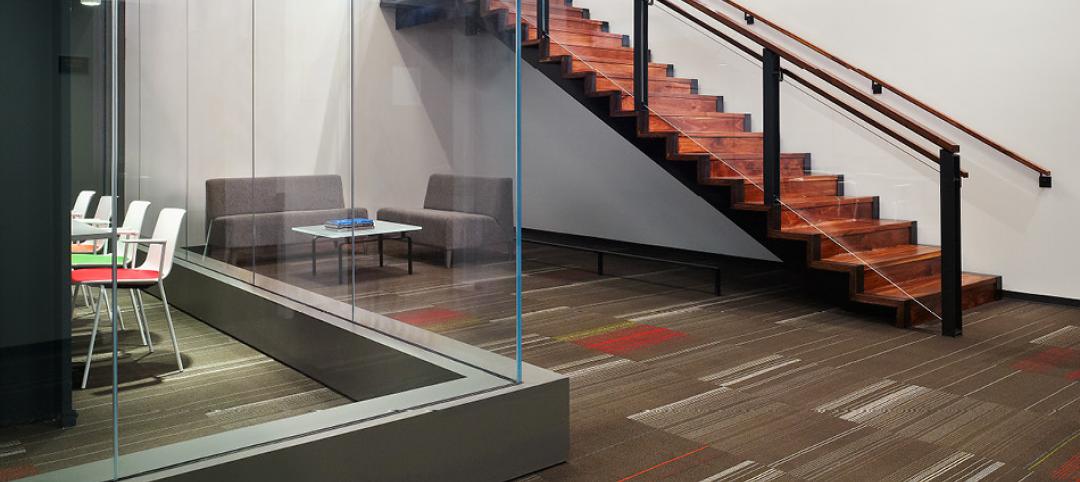The jury for the American Institute of Architects (AIA) Upjohn Research Initiative, a joint program of the College of Fellows and the Board Knowledge Committee to support knowledge sharing between practitioners and academicians, has announced the four projects selected to receive grants. The purpose of this grant, now in its ninth year, is to provide base funds for applied research projects that advance professional knowledge and practice. The 18-month long project grant qualifies recipients to have their findings and outcomes published both electronically and in a nationally distributed publication. The total award of $100,000 will be spread across the selected proposals. The four selected projects are listed below.
Auto-Shading Windows: Smart Thermobimetal Solar Blinds
Principal Investigator: Doris Sung, AIA (DOSU Studio Architecture)
With pressure from the outdoor environment such as swells in temperature, humidity, precipitation and demands from the interior to achieve variable comfort standards and evolving uses, buildings need to adjust automatically. By incorporating new, smart materials and creative assemblies, buildings now have the potential to modulate changes throughout the day. Smart materials require no added energy or computer controls. Thermobimetal is a smart material that automatically curls when heated and, when utilized strategically, can help liminal building surfaces automatically and optimally respond to temperature changes and direct sunlight. This proposal seeks funding to build a window prototype that will automatically block up to 90 percent of the sunlight entering a building while retaining a high level of visibility and view throughout the day. The net effect of this zero-energy system is energy and cost savings.
Building Resilience: A Tool for Planning & Decision-making
Principal Investigator: David Fannon, AIA (Northeastern University)
Recent events show the urgency of designing resilient new buildings and upgrading existing ones. However, it is not clear which combinations of attributes make buildings more likely to maintain useful function and adapt in the face of disturbances. Furthermore, buildings can be assessed based on the impacts from and contributions they make to the robustness, redundancy, resourcefulness and rapidity to recover of surrounding urban ecological systems. These are critical questions for architects, communities, and businesses, and yet there is very little information to guide decision-making about resilient building attributes. To meet this need, this project will develop a web-based tool to evaluate and compare multiple dimensions of resilience and sustainability in buildings, including technical and socio-ecological performance, energy use, and lifecycle impacts.
Clothesline Sunpower: PV Papeles
Principal Investigator: Kristina Yu, AIA (University of New Mexico; McCLAIN + YU Architecture & Design)
This proposal aims to demonstrate the design opportunities of the mobile installation of a new system of photovoltaics also known as solar panels. This investigation will examine the energy capture difference between the separate but related test project of the microelectronic photovoltaic (MEPV) taut mechanical shade system vs. this proposal’s novel design for a mobile simple install of a Clothesline Sunpower: PV Papeles MEPV system. The Clothesline Sunpower: PV Papeles MEPV system aims to capture sufficient to abundant energy to supply a home without the cumbersome and panelized PV panels which require extensive installation and space requirements. The MEPV technology affords a higher level of energy capture while providing a new tactility and versatile flexibility uncommon to PV systems today. The researchers aim to simplify the component pieces of the current MEPV taut shade and to create a functional temporary MEPV system that has the duality of ‘ease of install’ and ‘ease of use.’ Much like placing clothes on a line to dry in limited vertical spaces, the panels, with visual and high efficient variety, can be placed outside to collect the sunpower to harness and store within the interior space.
Point-of-Decision Design (PODD) to Support Healthy Behaviors in the College Campuses
Principal Investigators: Upali Nanda, Assoc. AIA, and Michelle Eichinger (Center for Advanced Design Research and Evaluation – CADRE/HKS; Designing4Health)
This research study aims to address the causes of weight gain, also known as obesogenic, in students on college campuses by answering the question: how can we make the healthy choice an easy choice through the design of critical point of decision prompts? The hypothesis is that well-designed point of decision prompts can promote healthier choices by students that can have a ripple effect on mental and physical health related to obesity. At each point of decision, design can help/hinder the healthier choice. There is a need to collate the vast information in planning and public health domains on a range of successful point of decision prompts and translate it into architectural guidelines that help define the edge condition for critical point of decision prompts. The researchers propose to develop a POD (point of decision) Design Guide and Analysis Tool.
Related Stories
| Jun 25, 2013
First look: Herzog & de Meuron's Jade Signature condo tower in Florida
Real estate developer Fortune International has released details of its new Jade Signature property, to be developed in Sunny Isles Beach near Miami. The luxury waterfront condo building will include 192 units in a 57-story building near high-end retail destinations and cultural venues.
| Jun 25, 2013
DC commission approves Gehry's redesign for Eisenhower memorial
Frank Gehry's updated for a new Dwight D. Eisenhower memorial in Washington, D.C., has been approved by the Eisenhower Memorial Commission, reports the Washington Post. The commission voted unanimously to approve the $110 million project, which has been gestating for 14 years.
| Jun 21, 2013
AIA report: Greater collaboration, stiffer competition among top trends in architecture
A new 34-page report from AIA highlights key trends in the architecture marketplace and their impact on business and growth.
| Jun 20, 2013
Virtual meetings enhance design of University at Buffalo Medical School
HOK designers in New York, St. Louis and Atlanta are using virtual meetings with their University at Buffalo (UB) client team to improve the design process for UB’s new School of Medicine and Biomedical Sciences on the Buffalo Niagara Medical Campus.
| Jun 19, 2013
Architects upbeat about the construction market
Following the first reversal into negative territory in ten months in April, AIA's Architecture Billings Index bounced back in May, reaching 52.9.
| Jun 19, 2013
NSF Sustainability begins verifying EPDs that can be used for LEED V4
NSF Sustainability has verified Environmental Product Declarations (EPDs) for nylon carpet styles and colors manufactured by Mannington Commercial and for J+J Flooring Group’s Kinetex® flooring product and Invision brand modular styles that use eKo® backing.
| Jun 19, 2013
Florida is latest battleground over LEED standards centered on certified wood
A nationwide battle over forest certification standards continues to be played out nationally and in Florida with legislation passed this month.
| Jun 19, 2013
Construction site safety improved in 2011
On-the-job construction fatalities dropped from 802 in 2010 to 781 in 2011, and recordable injuries fell from 4.7 per 100 workers in 2008 to 3.9 per 100 in 2011, according to data from the Bureau of Labor Statistics.
| Jun 19, 2013
New York City considers new construction standards for hospitals, multifamily buildings
Mayor Michael Bloomberg’s administration has proposed new building codes for hospitals and multifamily dwellings in New York City to help them be more resilient in the event of severe weather resulting from climate change.
| Jun 18, 2013
Report: HVAC occupancy sensors could slash building energy demand by 18%
Researchers at the DOE's Pacific Northwest National Laboratory conclude that significant energy savings can be achieved by varying ventilation levels based on the number of people in a given space.
















